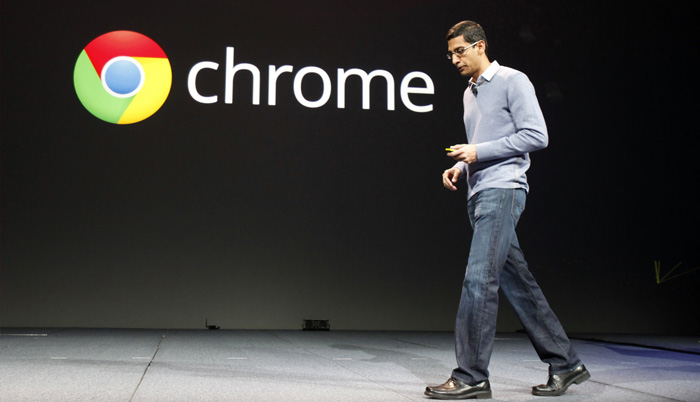![]() Home > Internet & Media
Home > Internet & Media
Chrome Warns You When A Shopping Site Isn't Secure

Stephen Lam / Reuters
![]() January 27th, 2017 | 11:00 AM |
January 27th, 2017 | 11:00 AM | ![]() 1312 views
1312 views
ENGADGETS.COM
Now it'll be easier to see if a site is encrypting your credit card info.
Paying bills and shopping online is great, but sometimes it's difficult to tell when the site you're using is protecting your sensitive information. The latest update for Chrome should make that a bit easier. Now, when you're on a site that asks for a password or credit card info and it isn't using HTTPS, it'll be flagged as "not secure" in red type and with a caution sign in the address field. It seems as though Google is using these literal scarlet letters as a way to advance its "HTTPS for all" initiative. Hopefully the shaming pushes more places into action.
A post on the Chromium blog also notes that page reload speeds have been boosted by as much as 28 percent on mobile for one specific site. Chrome on mobile now "has a simplified reload behavior to only validate the main resource and continue with a regular page load. This new behavior maximizes the reuse of cached resources and results in lower latency, power consumption and data usage."
Google's Takashi Toyoshima writes that Facebook contacted the company and said that Chrome was using triple the validation requests of other browsers. Implementing the changes has resulted in that speed boost for reloads on the social network, but it isn't clear if those performance boosts apply across the web as a whole. We've reached out for more information and will update this post should it arrive. In the meantime, you could always see if the difference holds true with the video embedded below.
Source:
courtesy of ENGADGET
by Timothy J. Seppala
If you have any stories or news that you would like to share with the global online community, please feel free to share it with us by contacting us directly at [email protected]